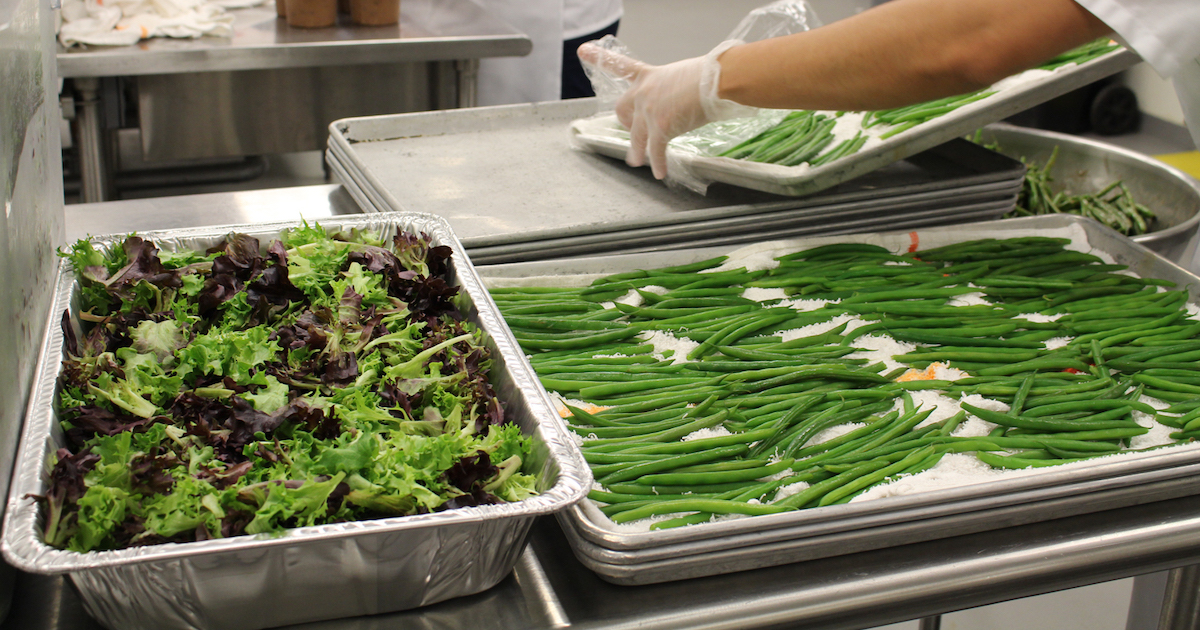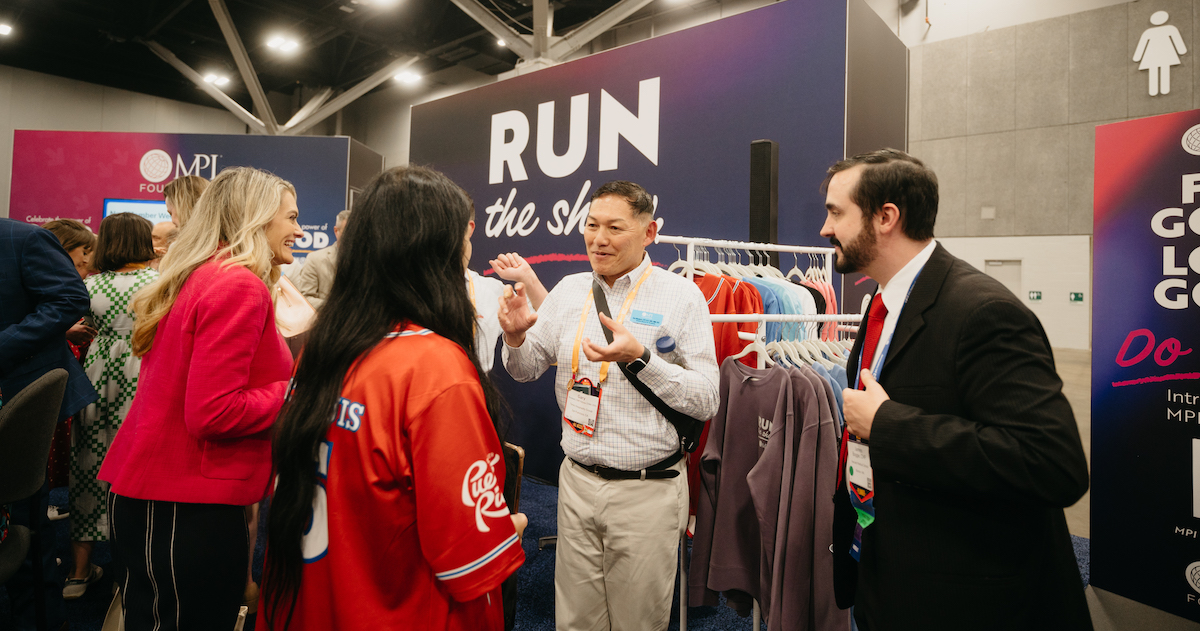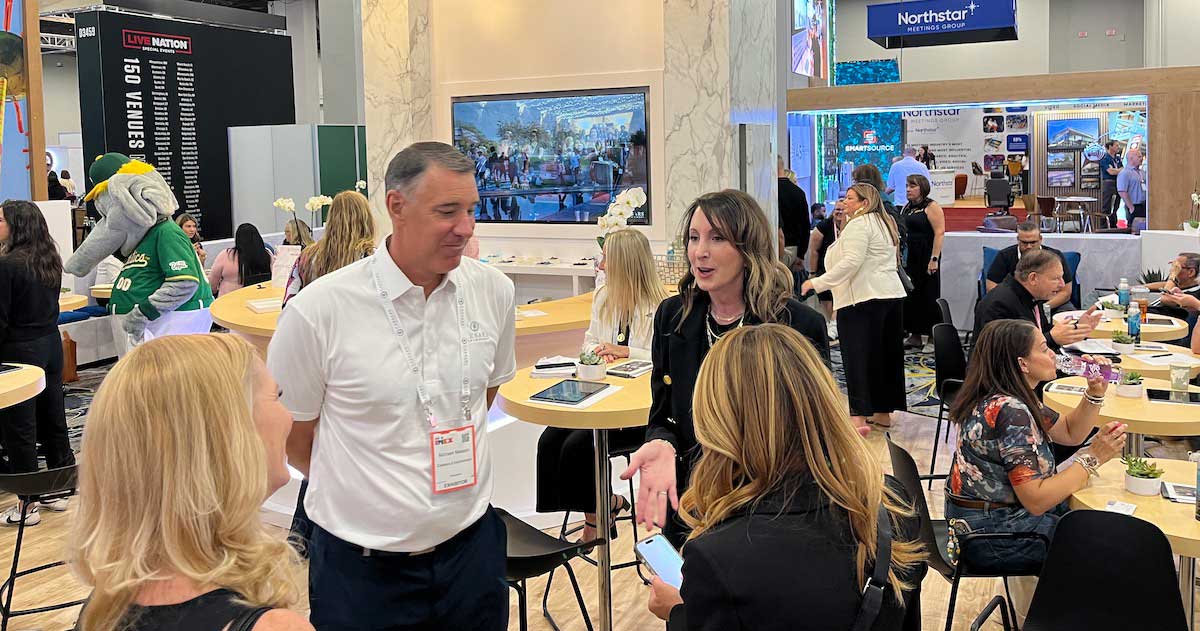“As people who feed people, we don’t want anyone in our community to go hungry, and we hate to see food go to waste. Because the coronavirus situation unfolded so quickly, many of our venues already had product in-house and ready to go for events,” says Scott Swiger, VP of culinary excellence for Spectra, an international venue management and food services and hospitality company that has been working with its convention centers across North America to identify opportunities for food recovery, donating to the local community and part-time staff.
“When event postponements started to roll in, we wanted to make sure the food went to people in our communities who needed it,” he says. “It was easy to connect the dots in this situation—most of our venues with food waste have relationships with local charities that they give to consistently.”
Most of our venues with food waste have relationships with local charities that they give to consistently.
There were many inspiring examples of convention centers around the U.S. helping vulnerable citizens in their communities with food donations when event postponements and cancelations became the norm following government prohibitions of public gatherings amid the novel coronavirus spread.
Swiger was particularly inspired by the actions of the Atlantic City (N.J.) Convention Center and Executive Chef George Fisher, who’s known for giving back in the South Jersey community.
“After Chef Fisher and his team donated 500 lbs. of food to a local veterans’ organization and the Salvation Army, he started helping casinos and other properties in the area,” he says. “He didn’t just stop at his own facility, but went out of his way to connect with chefs at other locations to help them get their product out there too.”
Centerplate at the Las Vegas Convention Center donated approximately 9,240 pounds of prepared food to the Las Vegas Rescue Mission, including 500 boxed lunches, 400 sandwiches, 400 salads and 100 food platters. The Pennsylvania Convention Center in Philadelphia and its Aramark partners donated 900 pounds of perishable food items to Sunday Breakfast Rescue Mission and the Valley Youth House’s Achieving Independence Center for distribution to individuals and families in need. The Los Angeles Convention Center and Levy Restaurants partnered with Musically Fed to donate and distribute 4,000 pounds of food to the Alliance College-Ready Public Schools, benefiting students grades six to 12 and their families.
Related Webinar: Coronavirus Dialogue Series - Crisis Communications
“We were looking to help the community wherever we could,” says Ashley Russo, director of sales and marketing at the Los Angeles Convention Center for Levy Restaurants. “We reached out to multiple outlets to see if our donations matched their needs; ultimately, the Alliance College-Ready Public Schools was the best match based on our items and their needs.”
When Blue Cross and Blue Shield of NC and a major entertainment company were forced to cancel their events at the Raleigh (N.C.) Convention Center due to the novel coronavirus, the convention center and its Centerplate F&B team were able to provide almost 800 banquet-ready meals to local organizations to support those experiencing homelessness and those who are food-insecure.
“Throughout the year, the Raleigh Convention Center partners with the outstanding team at the Food Bank of North Carolina, which gives us a streamlined connection to a large network of local organizations in need of nutritious meals,” says Kerry Painter, CCFE, CEM, CMP, director/general manager of the Raleigh Convention and Performing Arts Complex. “Through this relationship, we are able to quickly and directly donate to those in need—we prepare the meals and the organizations arrange pick-up—as opposed to us moving food from our kitchen to a distribution center, then to the site in need. We are discovering that this model decreases the amount of transportation and coordination and is an efficient, safer and more environmentally friendly way to contribute food.”
She says the biggest logistical challenge with such a food donation effort is the pick-up.
“With multiple organizations coming directly to our site, it takes a great deal of planning, coordination and communication to address timing and logistics, especially when we have events in-house happening simultaneously,” Painter says. “Many of the organizations we serve are powered by volunteers and have relatively lean staffing, so being ready and efficient is critical to a successful transfer of food. However, logistical coordination is a very small price to pay to help the hunger-challenged community!”
Swiger says a significant challenge for Spectra is finding a home for the food—making sure the food is going to organizations that can use it and accept it.
“We didn’t want to send product to places that would throw it out because they couldn’t store it,” he says. “A lot of our venues have longstanding community partners. For example, we might regularly work with a local shelter, but that shelter might only have two standup refrigerators—not enough to store a full pallet of food. That’s where Food Recovery Network (FRN) comes in to help. If our normal community partners weren’t the right fit for our product, FRN has the reach and the expertise to help Spectra make local connections in order to allocate the quantity of food that we have.”
Swiger says FRN has partnered with Spectra on its annual Culinary Innovation Summit, where Regina Anderson, FRN executive director, spoke on a panel about food waste and food recovery last year.
“Because of that, many of our chefs are familiar with FRN and have that pre-existing relationship,” he says. “She advises and educates us on ways to manage food waste and recovery efforts.”







